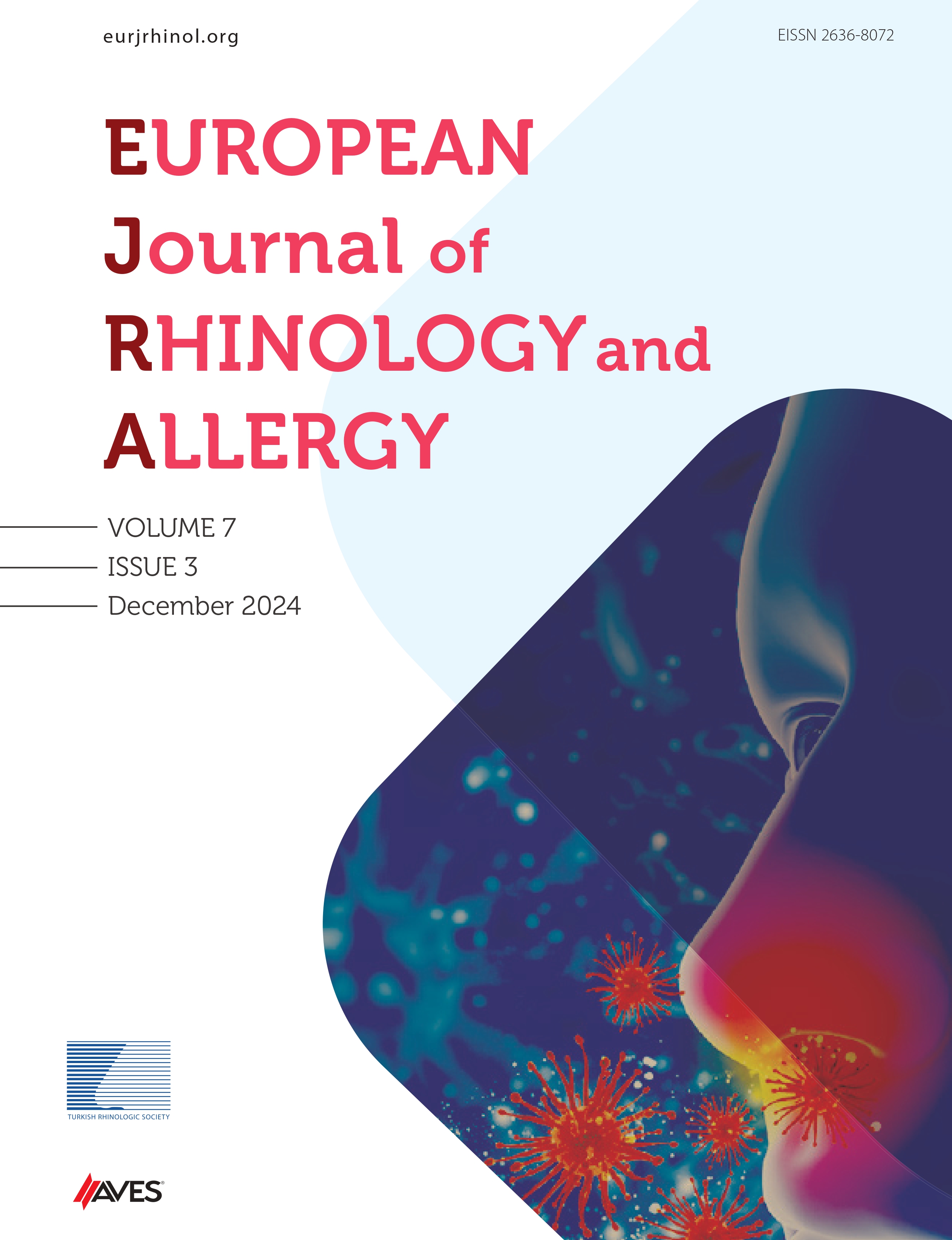Objectives: To analyze the initial investigation and management of allergic rhinitis (AR) patients in general practice and determine if it could be expanded further.
Methods: Clinical letters of patients with a diagnosis of AR seen in our outpatient’s department for the past 5 years were retrospectively reviewed. We have confirmed the diagnosis when possible, with allergy tests.
Results: From 555 patients included in our study, 90.6% were referred by their general practitioner (GP). Male to female ratio was 1.7. Almost half of the patients presented with nasal congestion had typical AR symptoms. A positive personal history of atopy was present in 19% of cases. Only 4% of GPs performed nasal examination on their patients. One hundred and five patients (19%) were prescribed nasal sprays, but they neither received instructions on the technique nor were told to use them long term. Twelve percent of the cases had allergy testing done prior to our clinic assessment, which confirmed allergen sensitization in 82% of these cases.
Conclusions: More efficient triaging and initial management of GP and otolaryngology referrals for rhinitis could result in fewer patients needing hospital management. We propose an instruction manual for GP suggesting initial appropriate and consistent topical therapy for at least 3 months, particularly in patients with a positive personal or family history of atopy, who have also been instructed in allergy avoidance. Those who fail should have allergy testing done or an alternative diagnosis considered.
Cite this article as: Nae A, Colreavy MP. Initial Management of Allergic Rhinitis in the Community—Could It Be Expanded? Eur J Rhinol Allergy. 2021;4(2):62-67.

.png)

.png)